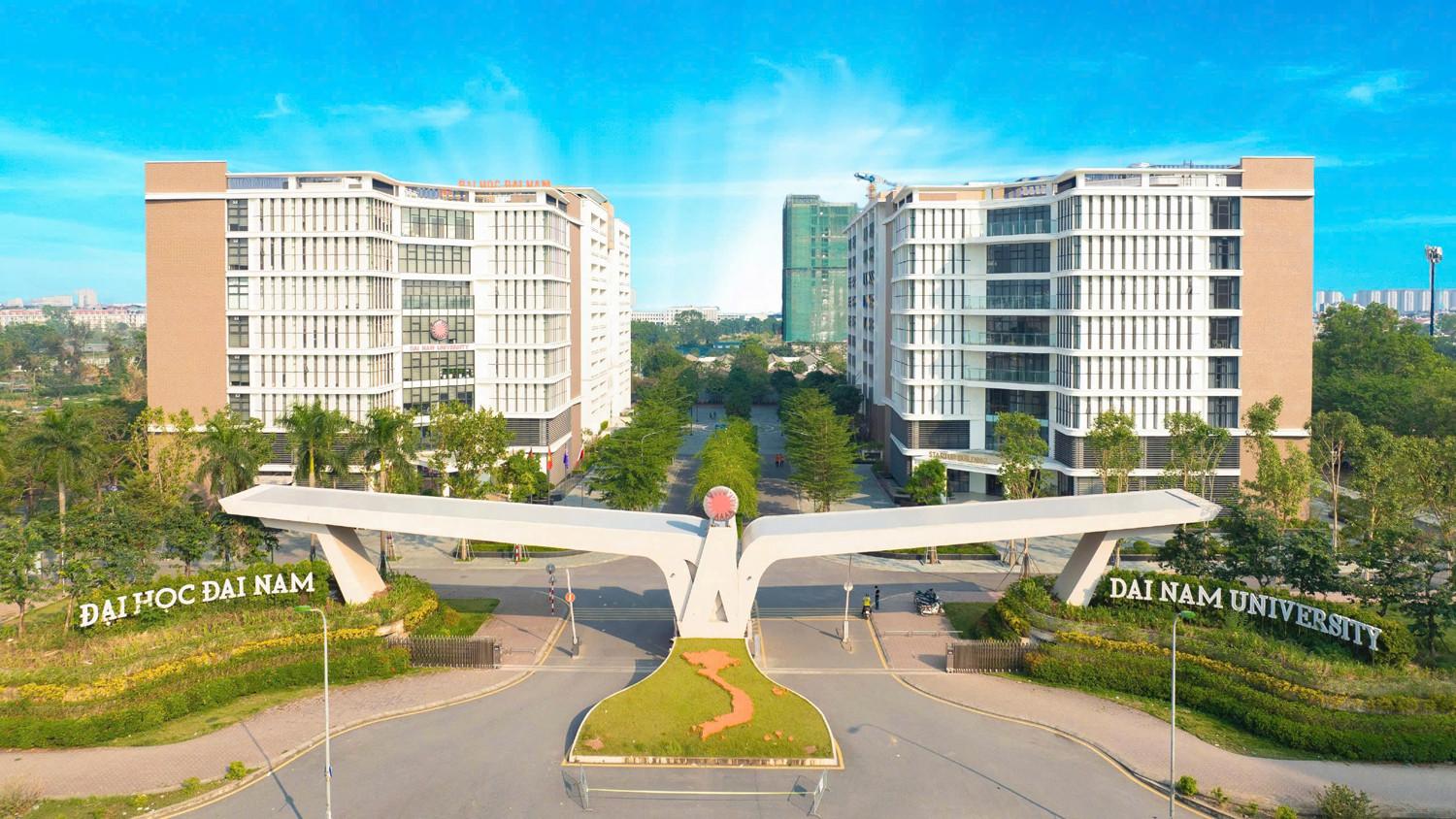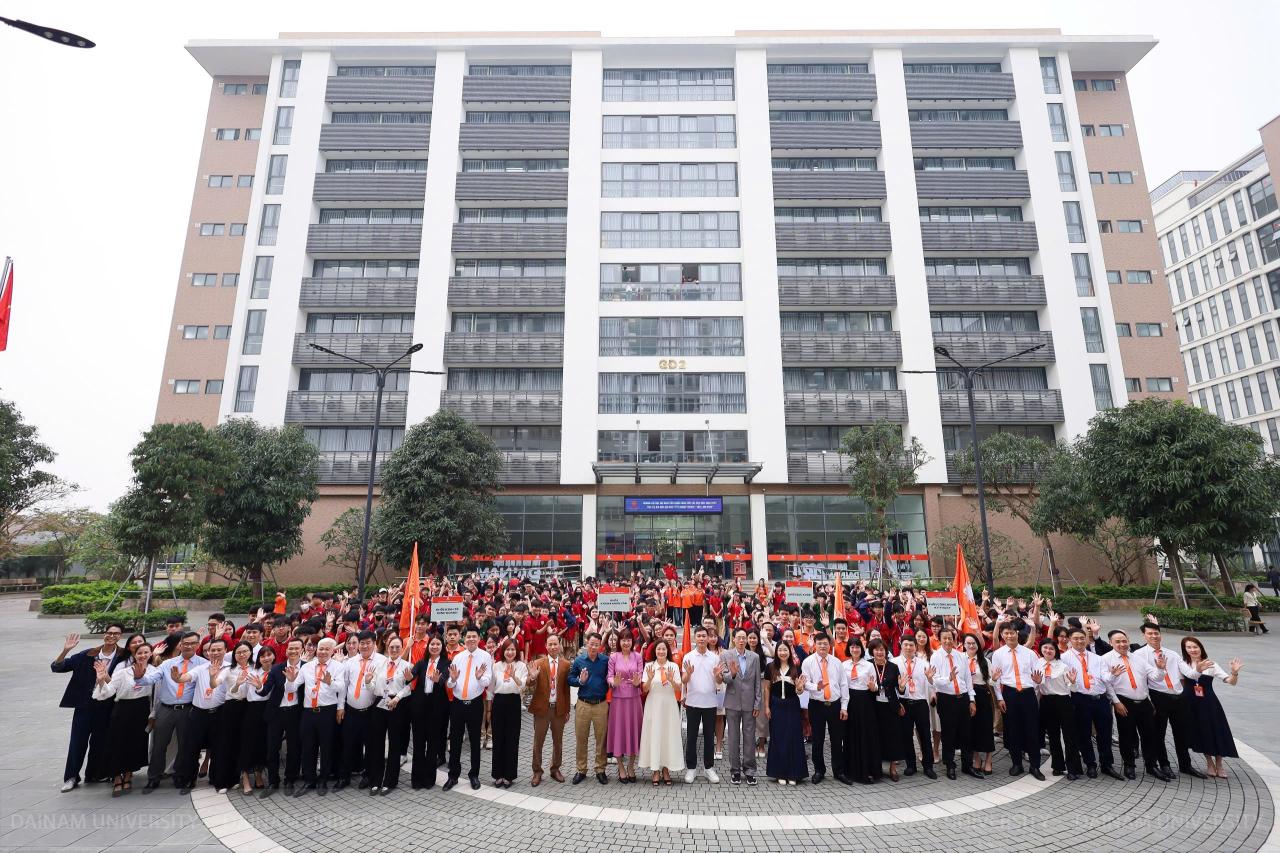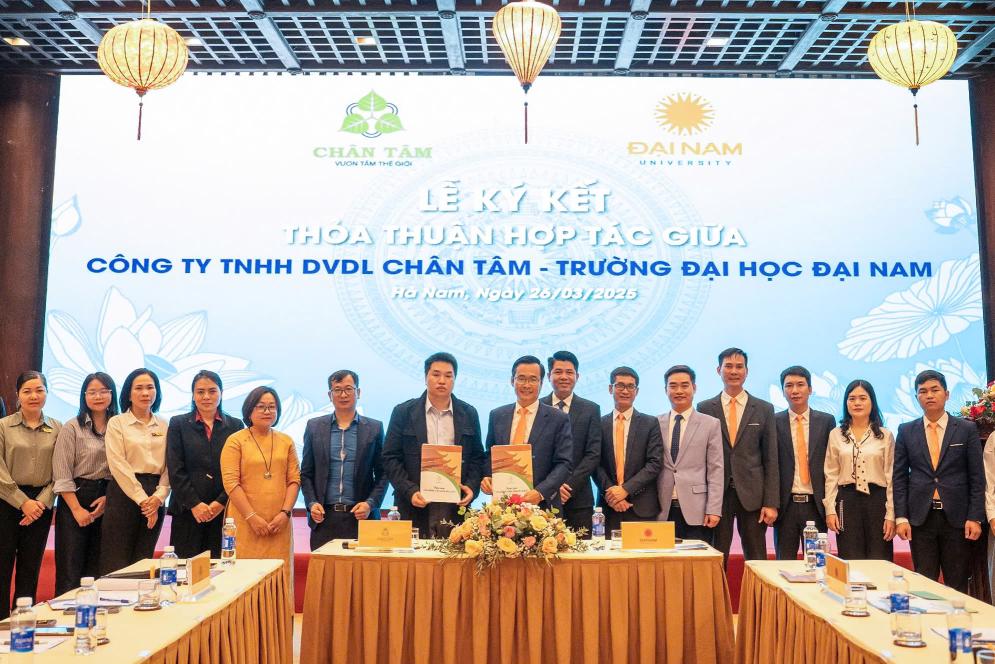The appeal of English language in the 4.0 era

The 4.0 industrial revolution is spreading at a dizzying speed, strongly affecting all fields and occupations and the shift in labor structure. Besides opportunities, the 4.0 revolution poses many challenges for workers, including students. The question is, how can students - the intellectual force, the high-quality labor force of society - catch up and integrate into this revolution?
English - a bridge to develop adaptive skills and integrate into the 4.0 revolution
According to experts, in the face of the wave of the 4.0 industrial revolution, in order to adapt and integrate, each individual needs to promptly grasp the trend; proactively cultivate new knowledge and skills. These are skills to solve complex problems, critical thinking skills, innovation skills, management skills, teamwork skills... and multi-disciplinary cultural knowledge. An extremely important bridge to develop the above skills is proficiency in foreign languages, especially English.
Mr. Dang Ngoc Huong - Head of the Foreign Language Department of Dia Nam University shared: “Although English is not the most widely used language in the world, it is the most common language in the world. Proficiency in English will help students access a large amount of human knowledge; learn skills more easily and understand multinational cultures…”

English is one of the important means to integrate with the 4.0 industrial revolution.
According to Mr. Dang Ngoc Huong, nowadays, along with professional knowledge, soft skills and information technology, foreign languages are important factors that make up the "key" to success, helping students after graduation to work in many important positions and in any country in the world. Proficiency in English will greatly help students in the process of integrating into the 4.0 industrial revolution.
Actual surveys from recruitment activities of enterprises also show that candidates who do not have the advantage of foreign languages, no matter how good their professional qualifications, are very likely to "lose points" with employers. And when choosing between a candidate who has both professional qualifications and foreign language skills and a candidate who only has professional qualifications, employers will prefer to choose candidates who satisfy both criteria.
Where to study English?
Understanding the importance of English, Dai Nam University attaches special importance to training this foreign language for students. Dai Nam University is one of the first universities in the North to apply TOEIC output standards. In order for students to learn foreign languages, the University is willing to reduce unnecessary general subjects and increase the number of English credits in the training programs of the majors.
After more than a decade of construction and development, the English Language Department of Dai Nam University has become a prestigious and quality training address, highly trusted by learners and society.

Dynamic and modern learning environment of the English Language Faculty of Dai Nam University.
The English Language Department currently offers training in two main majors: English Translation and Interpretation and Business English. In addition, the Department also undertakes English training for all non-major students at undergraduate and postgraduate levels; English training for students studying abroad or in joint programs with foreign schools.

With the aim of improving the quality of training, the Faculty of English regularly organizes scientific seminars to develop university teaching skills.
With the awareness that the staff and lecturers are the key to the quality of training, the English Language Department of Dai Nam University pays special attention to recruiting and developing the staff and lecturers. 100% of the lecturers have a master's degree or higher. The lecturers have good professional skills, enthusiasm and active teaching methods suitable for modern foreign language teaching methods to meet the increasing needs of students. In particular, students are taught by native speakers from the first year and continuously throughout the course.
“The lecturers of the English Language Department are trained to improve their qualifications every year through participating in international, domestic and school-based teaching method seminars. 100% of the lecturers are trained in TOEIC teaching method classes, actively teaching using advanced English programs of the US Testing Service organized by IIG in Vietnam. In particular, the lecturers are evaluated by students every semester with very positive results: 70% are excellent, 30% are good…” said Mr. Huong.

Lecturers of the English Language Department participate in training in teaching English according to the international TOEIC test orientation.
Along with the general development of Dai Nam University, the Faculty of English Language is actively transforming itself, striving to become one of the strong faculties, with many great achievements in teaching and scientific research; becoming a training institution highly trusted by society for its training quality of "learning goes hand in hand with practice", "taking learners as the center". At the same time, the Faculty of English Language is one of the successful faculties in building training programs, modern and dynamic teaching methods, standardizing foreign language skills for all students in the school, ensuring that upon graduation, they will reach the standard of 450 TOEIC points, and for language major students, they will reach the standard of 550 TOEIC or higher.

Staff and lecturers actively participate in scientific research.

The student scientific research movement of the Faculty of English Language is always a bright spot of Dai Nam University.
Sharing about the training program of the English Language Department, Mr. Dang Ngoc Huong said: “The training program is updated according to the latest framework of the Ministry of Education and Training. Language practice subjects account for 2/3 of the credits of the entire program. The latest and best curriculum in the world, such as: New English File (2008), Speak out (2010), Let's Talk (2008), Reading for the Real World (2009), English Grammar (2006)... 100% of lecturers use active teaching methods to help students grasp knowledge quickly and communicate in English extremely well. Students can practice well the 4 skills: listening, speaking, reading, writing right during their time at school. In addition, students have many conditions to combine in-class learning with learning at home, direct learning (face to face, offline) with online learning, guided learning and self-study at home or in the library”.
Most of the students interviewed were very interested and satisfied with the youthful, dynamic and modern learning environment of the English Language Department.
Dinh Thi Mai Thuong - class TA 11-01, English Language Department shared: “The Department has created a friendly, fun, dynamic and modern learning environment that helps us remove all barriers to achieve the best learning results. We learn through situations, fun games, and practice the 4 skills of listening - speaking - reading - writing a lot. In particular, the teachers always care, share and inspire students to have a positive learning attitude…”
According to Mai Thuong, with the program and teaching methods at the English Language Department, students can completely achieve the output standards without having to study at any English center.
The actual survey shows that after graduation, students of the Faculty of English in particular and students of Dai Nam University in general have good English proficiency, good moral qualities, good working skills and good integration in work and life. Most students can use English effectively in studying, scientific research... and can confidently work in working environments with foreign elements.
In addition, with systematic and synchronous training in professional knowledge, soft skills, and continuous experience in useful practical activities, students of the faculty are equipped with personal qualities and skills such as: communication skills, teamwork, problem-solving and grasping skills, thinking skills, etc.
The rate of students receiving scholarships is always among the top of the school. In addition, the faculty also focuses on scientific research activities and scientific seminars for students to learn, improve their knowledge, and develop themselves more completely.

Students of the Faculty of English Language regularly experience useful extracurricular activities.
With student movements and volunteer activities for the community, the English Language Department is always at the forefront with outstanding achievements such as: New Student Welcome Performance, Let's Dance, Love Cake, English Olympic, Youth Camp with Green Living... In particular, the English Corner English Club organized by students in the Department with faculty advisors is a particularly interesting playground for students to study, play, exchange and learn, and improve their English proficiency.
A survey of the employment situation of alumni over the years shows that 100% of graduates from the English Language Department of Dai Nam University have jobs with a starting salary of 8-10 million VND. After graduating with a Bachelor's degree in English Language, they can take on positions such as: translator, editor, reporter, office secretary, tour guide, researcher, university lecturer, high school teacher, etc.
Over the past decade, the English Language Department of Dai Nam University has made great strides in both quantity and quality, meeting the requirements and demands of the school and society in teaching and equipping basic and specialized foreign languages for all generations of students and trainees.

With the achievements, the faculty and students in the Faculty have been and will continue to strive to improve the quality of teaching and learning, standardize the training program as well as the teaching staff, aiming for an updated and advanced training program to meet the requirements of the integration and globalization process, thereby contributing to the strong development of the Faculty and the School.
Thu Hoe









